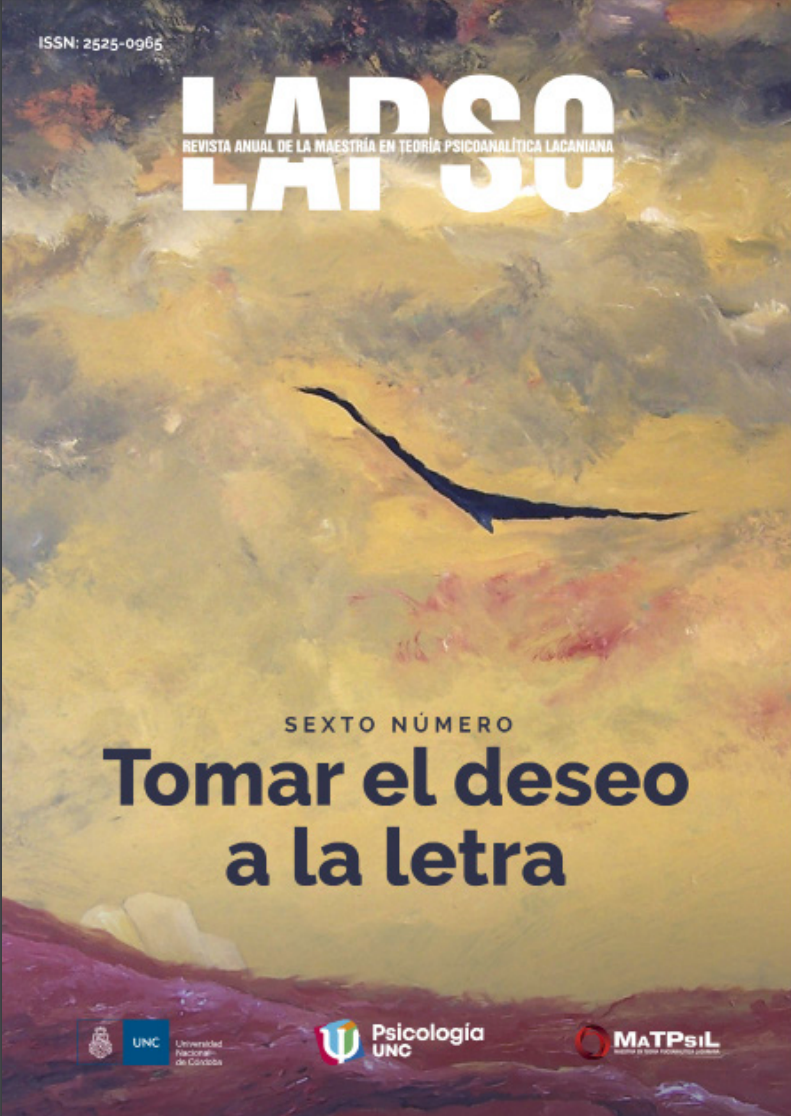Ética del Psicoanálisis, un principio no imperativo
Keywords:
Antígona, deseo, ética, letraAbstract
In the present work, we are committed to introducing the question of desire, its status in the analytic clinic, and its value with respect to a time marked by the imperative to jouissance and the bureaucracy of the self. To do this, the resonances of the phrase “take the desire to the letter” (Lacan, 1958 [2010], p. 590), as an ethical principle of orientation in the direction of analytical healing, will be analyzed; and its counterpoint with the notion of «pure desire» associated with Sophocles’ tragedy of «Antígona», raised by Lacan (1959-1960 [2007]) in his Seminar 7. Finally, from the tension between both phrases, a fundamental warning will be developed that serves as a compass, namely that to orient oneself by desire, is not, however, to make it an imperative.
References
Lacan, J. (1964-1968 [1984]). Reseñas de Enseñanza. Buenos Aires: Manantial Editores.
Lacan, J. (1959-1960 [2007]). “La ética del Psicoanálisis” en El Seminario de Jacques Lacan, Libro 7. Buenos Aires: Paidós.
Lacan, J. (1958 [2010]). “La Dirección de la Cura y los principios de su poder” en Escritos 2. Buenos Aires: Siglo Veintiuno Editores.
Lacan, J. (1953 [2014]). “Función y campo de la palabra y el lenguaje en psicoanálisis” en Escritos 1. Buenos Aires: Siglo Veintiuno Editores.
Lacan, J. (1957 [2014]). “La instancia de la letra en el inconsciente o la razón desde Freud” en Escritos 1. Buenos Aires: Siglo Veintiuno Editores.
Gómez, M. (2007). Del significante a la letra. La semiótica peirceana en el proceso de formulación del discurso lacaniano. Córdoba: Alción Editora.
Sófocles. (1992). Antígona en Tragedias. Madrid: Gredos.
Downloads
Published
Issue
Section
License

This work is licensed under a Creative Commons Attribution-NonCommercial 4.0 International License.
Se permite la generación de obras derivadas siempre que no se haga con fines comerciales. Tampoco se puede utilizar la obra original con fines comerciales.


